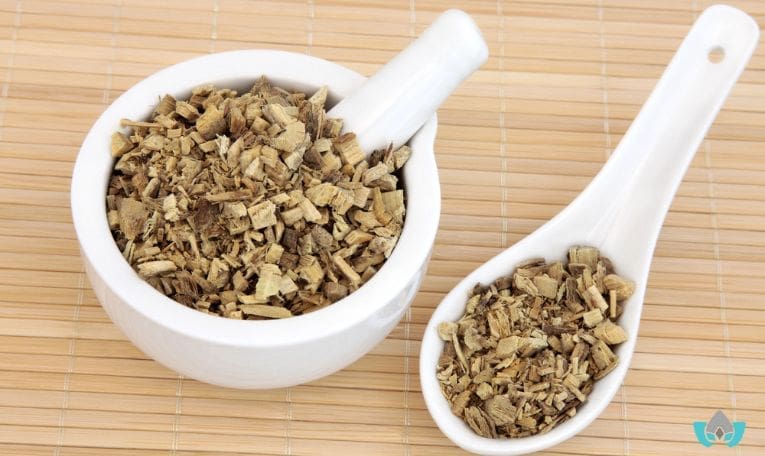
Have you been having persistent feelings of acid reflux or heartburn?
Most people occasionally experience acid reflux, indigestion, or heartburn.
However, if you’re experiencing these symptoms more than twice per week, it may be an indication that you have GERD.
GERD, or gastroesophageal reflux disease, is a form of chronic acid reflux, which can also cause heartburn.
It can cause you pain and irritation.
If left untreated, can lead to more serious health complications.
The Mindful Healing Clinic is a naturopathic clinic that offers personalized naturopathic health solutions.
Today, we want to explore naturopathic approaches to providing treatment for GERD, which may help to manage and reduce your symptoms.
Keep reading to find out more.
What Is GERD (Gastroesophageal Reflux Disease)?
GERD, also known as gastroesophageal reflux disease, is a chronic condition that affects your digestive system.
It’s primarily characterized by causing persistent acid reflux or heartburn.
Acid reflux is the result of your stomach acid flowing back into your esophagus, which is the tube that connects your stomach to your mouth.
This acid can cause the lining in your esophagus to become irritated.
While GERD isn’t usually dangerous, if left untreated, it may lead to health complications.
Luckily, there are numerous naturopathic solutions that can help you manage and relieve the symptoms of GERD.
How To Know If You Have GERD
The most common, symptom of GERD is persistent heartburn.
Heartburn can cause you to experience a burning sensation in your stomach that may spread to your chest, throat, and neck.
It can also cause you to regurgitate sour or bitter tasting food or liquid from your stomach into your throat or mouth.
The combination of heartburn and regurgitation is a significant indication that you have GERD.
You may also experience other symptoms, such as:
- Coughing
- Chest pain
- Feeling of a blockage or lump in the throat
- Bad breath
- Hoarse voice
- Sore throat
It’s not just adults that can get GERD, either.
Infants can have GERD, too.
When it comes to infants, it’s normal for them to sometimes spit up or regurgitate food.
However, if they do so frequently it could mean that they have GERD.
Symptoms of GERD in infants may also include:
- Reluctance to eat
- Weight loss or stunted growth in kids
- Chronic cough
- Sleep issues
- Gagging or choking
- Difficulty swallowing
- Wet burps or hiccups
Persistent irritability
It’s also possible that some people may experience alarm symptoms.
These are symptoms that are associated with GERD, which can also be indicative of another underlying condition.
Alarm symptoms associated with GERD can include:
- Feeding and swallowing issues (dysphagia)
- Nausea
- Vomiting
- Anemia
- Bleeding
- Weight loss
- Pain when swallowing (odynophagia)
These symptoms are generally persistent and may become worse.
It’s important to monitor your symptoms so that you can implement treatment solutions for underlying conditions if necessary.
What Causes GERD?
GERD may be caused by a poorly functioning or loosened LES, or lower esophageal sphincter.
The LES is a round band of muscle that creates the opening between the esophagus and stomach.
When it relaxes, it opens to allow food and saliva to travel from the esophagus into the stomach.
When it’s tightened, it closes back up.
If your LES is loose, it can cause stomach acid to go up your esophagus rather than down into your small intestine.
In other words, acid reflux.
When this happens it can cause irritation, pain, and, if persistent, damage to surrounding tissue.
Problems with your LES may be the result of a hiatal hernia, eating large meals frequently, and lying down too quickly after eating.
Other factors that can contribute to the development of GERD can include:
- Smoking
- Overuse of anti inflammatory drugs
- Obesity
- Pregnancy
- Old age
- Alcohol use
- Eating large meals before lying down
- Connective tissue disorders
- Anxiety
- IBS, or irritable bowel syndrome
- Asthma
RELATED: Solutions For Digestive Issues
Additionally, certain foods can contribute to triggering symptoms of GERD.
However, they’re not the cause of it.
If you have GERD, it’s a good idea to avoid things like:
- Coffee
- Sugar and refined flours
- Chocolate
- Spicy foods
- High fat foods
- Acidic foods
RELATED: How To Bounce Back After Bingeing On Junk Food
How Can Naturopathic Medicine Help With GERD?
Naturopathic medicine can help address the underlying cause of GERD.
Natural approaches for GERD involve dietary and lifestyle changes.
These changes aim to avoid triggering acid reflux, helping strengthen the LES, and improving your digestive function.
With the right approach, you may be able to help reduce and manage GERD symptoms.
Let’s take a closer look at how naturopathic medicine can help with GERD.
1. By Providing A GERD Friendly Diet
As we’ve already mentioned, certain dietary items can increase your risk of experiencing acid reflux.
It’s a good idea to avoid foods and drinks such as:
- Tomatoes and tomato products
- Caffeine
- Fried foods
- High fat foods
- Citrus fruit
- Mint
- Garlic
- Alcohol
- Onions
Sugary foods and bread or baked goods
- Chocolate
- Carbonated beverages
While avoiding these triggers can help reduce your risk of experiencing GERD related symptoms, additional dietary changes may provide further benefits.
One dietary change you can implement is to have low sugarfat, high protein meals.
Not only does having low dietary sugarfat reduce your symptoms, but adequate amounts of protein and fiber can help make you feel full and prevent overeating.
Having fermented and cultured foods can also help decrease inflammation and support your immune function.
Another thing to consider is chewing non mint gum after each meal.
This can help increase your saliva production which can help protect your esophagus by keeping stomach acid out of it.
RELATED: How To Create A Nutritious, Environmentally Friendly Diet
2. By Providing Stress Management Solutions
Stress can be a contributing factor to the development of GERD.
Recognizing the signs of stress can help you better manage them.
Reducing your stress can relax your mind and body, and promote your digestive function.
It also helps increase the function of your esophageal muscles, which help to keep your stomach acids in your stomach.
Some stress management solutions you can try include:
- Walking
- Exercise
- Yoga
- Meditation
- Gardening
- Being in nature
- Taking up a new hobby
- Spending time with friends and family

3. By Recommending Botanical Medicine Solutions
A botanical medicine doctor may help provide treatment for GERD.
Slippery elm is a tree native to North America and contains a substance called mucilage, which becomes a gel when mixed with water.
As a nutritional supplement, the gel made from slippery elm can help coat and soothe inflamed tissues in your GI tract.
Additionally, it can help increase intestinal mucus production which can help prevent excess acidity and the development of ulcers.
Slippery elm shows promise in the treatment of GERD, but more research is needed.
Another botanical treatment solution that may help alleviate symptoms of GERD is deglycyrrhizinated licorice (DGL).
DGL is a processed form of licorice root that may promote mucus activity.
The additional mucus could act like a barrier and protect the stomach and esophagus from acid.
It can also allow damaged tissues to heal and reduce the risk of recurring acid reflux.
DLG may have interactions with other medicines and increase the risk for preterm labor if you’re pregnant.
It’s a good idea to speak to your naturopathic doctor about potential risks and interactions if you’re considering taking DGL.
Other botanical medicines that can be effective in soothing and reconstructing the mucous membrane lining in the esophagus include:
- Curcumin
- Potable aloe vera juice
- Zinc carnosine
- Chamomile
- Marshmallow root
When exploring botanical medicine, it’s always a good idea to speak with a naturopathic doctor first.
4. By Recommending Lifestyle Changes
There are several lifestyle factors that can contribute to the development of GERD.
By making certain lifestyle changes you can reduce your risk of experiencing GERD and alleviate existing symptoms.
GERD appears to be more prevalent in those that are overweight because of added pressure on the stomach.
Implementing a balanced diet alongside regular physical activity can help you manage your weight and provide relief for GERD, among other health benefits.
RELATED: How To Lose Weight With Water
RELATED: The Worst Weight Loss Advice
It’s also recommended to eat smaller, more frequent meals.
This allows your stomach to process your food and can help prevent stomach acids from flowing back up your esophagus.
If you drink alcohol, reducing the quantity and frequency of alcohol consumption may also alleviate GERD related symptoms.
If you smoke and experience GERD or heartburn, quitting may help.
Smoking causes damage to the LES, which can result in experiencing more frequent heartburn and GERD episodes.
5. Other Solutions
There are a few more strategies that a naturopathic doctor can support you with if you experience GERD.
Drinking water while you eat can thin out your food, making it easier to go back up your esophagus.
So, it’s better to drink water in between your meals, not during.
Furthermore, lying down right after eating a meal can trigger heartburn, so it’s a good idea that you sit up for a little while.
Having your last meal of the day 3 hours before bed is a key strategy.
Taking a walk after a large meal may also help prevent heartburn or acid reflux.
Additionally, when you go to sleep, keeping your head elevated with pillows may help to prevent the occurrence of nighttime heartburn.
Another thing to keep in mind is that wearing clothes that are too tight can increase the frequency of you experiencing acid reflux.
Particular if you wear tight bottoms and belts.
This is because they place pressure on your abdomen and increase your risk of heartburn.
So, if you have GERD, try wearing looser clothing.
A naturopathic doctor can help you evaluate which lifestyle changes will work best for you.
Book Your Appointment With Our Naturopathic Clinic Today
If you’re looking for a naturopathic approach to GERD, we can help.
At the Mindful Healing Naturopathic Clinic, we offer a variety of naturopathic health solutions and can help address your health concerns.
We can help answer any questions you may have and help you find a treatment option that’s right for you.
Book your appointment with The Mindful Healing Naturopathic Clinic today.
Until next time,
Dr. Maria Cavallazzi, N.D
Mindful Healing Naturopathic Clinic
Mississauga, ON L5M 1L7
(905) 819-8200
► https://g.page/MindfulClinicNaturopathic
Dr. Maria Cavallazzi is a medical doctor from Colombia where she practiced as a family physician for 8 years until she moved to Canada 16 years ago and became a naturopathic doctor in Mississauga.


